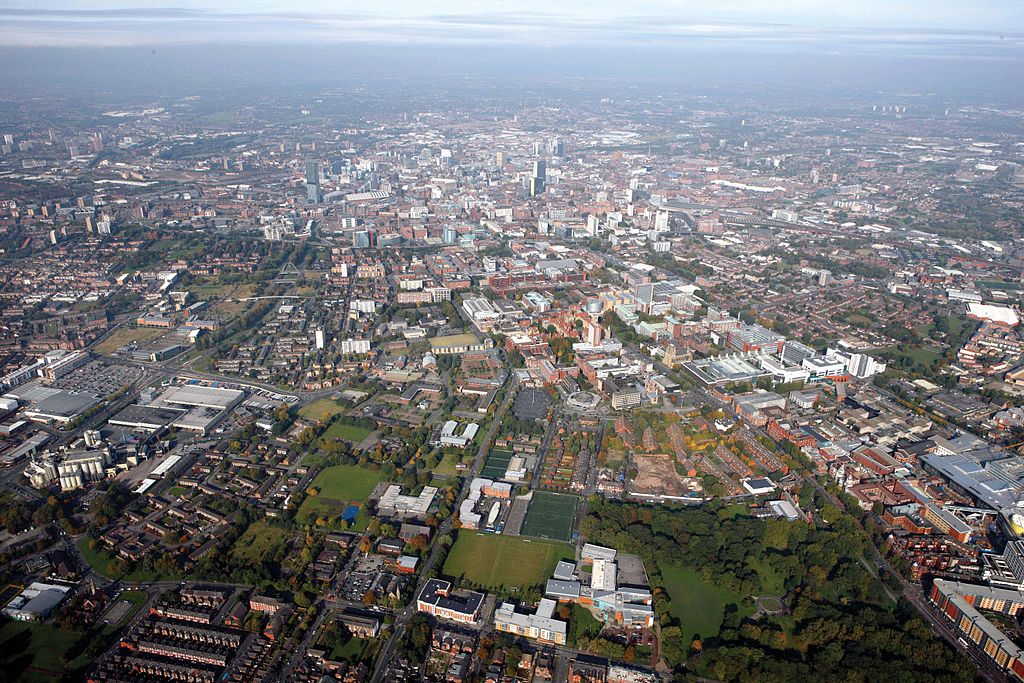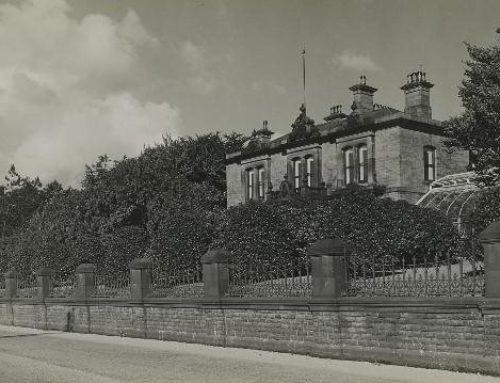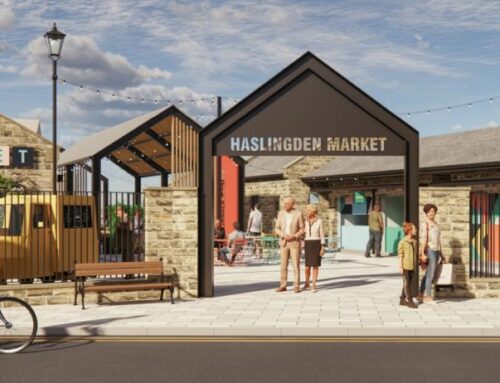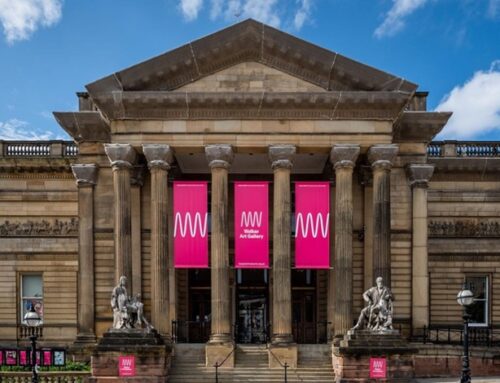In this article, we will discuss how Manchester’s small Roman town became known as the country’s industrial capital.
Historically part of Lancashire until the 20th century until it became a county, Manchester City is in the North West of England.
It is the third most visited city in the UK.
The history of Manchester can reach as far back as the Roman invasion.
As a prime location for a northern garrison, the Romans built a sandstone bluff near the rivers Medlock and Irwell in 79AD. This area is the first recorded settlement.
At the turn of the 19th century, Manchester expanded at an astonishing rate; this expansion was the cause of the industrial revolution. The result made Manchester the first industrialised city in the world. It was in 1853 that Manchester achieved the status of City. It was gaining “second” city statue in the United Kingdom.
With the city’s growth and the notion of hard work, the worker bee became a Motif to represent the industry within the town.
Known for
Known for architecture, culture, music, media links, social impacts, sports clubs, transport connections and scientific and engineering outputs, Manchester is notable for its firsts.
 Architecture – Thomas De La Warre, Lord of the Manor, founded and constructed a Collegiate church for the parish in 1421. This church is the Manchester Cathedral, and the College house is the Chetham’s School of Music and Chetham’s Library.
Architecture – Thomas De La Warre, Lord of the Manor, founded and constructed a Collegiate church for the parish in 1421. This church is the Manchester Cathedral, and the College house is the Chetham’s School of Music and Chetham’s Library.
Chetham’s Library, opened in 1653, is the oldest free public reference library in the UK.
Media Links – Each year, Manchester city organises a Film Festival that lasts a week. It is a truly independent film festival, committed and dedicated to sharing great stories from both new and established international and domestic filmmakers from the world of independent cinema. The organisation is proud of its honest and transparent roots. It will continue with the original ethos of selecting films from open submissions.
 Manchester is home to Media City, an international hub for technology, innovation and creativity.
Manchester is home to Media City, an international hub for technology, innovation and creativity.
Social impact- Manchester’s Trafford park was the world first industrial estate.
The centre of the Economic school of Manchester capitalism developed and the anti-corn law league from 1838.
Manchester seemed a place where anything could happen—
- new industrial processes,
- new ways of thinking (the Manchester School, promoting free trade and laissez-faire),
- new classes or groups in society,
- new religious sects,
- and new forms of labour organisation.
Cotton Industry
Manchester’s first taste of the cotton industry is traced back to the 14th century with the Flemish weavers. Around 1750 pure cotton fabrics were being produced, and it had overtaken wool in importance.
Rivers in Manchester were made navigable in 1736; this opened roots for Manchester to get to the Mersey sea docks.
Britain’s first wholly artificial waterway is the Bridgewater canal. This amenity opened Manchester up to becoming the dominant marketplace for textiles produced in the surrounding towns.
In 1780 Mr Richard Arkwright began construction of Manchester’s first cotton mill.
Manchester was dubbed “Cottonopolis” and “Wearhouse City.”
During the industrial revolution, Manchester expanded incredibly, many industries developed.
The engineering companies which specialised in making cotton machinery diversified into the general manufacturing industry; the banking and insurance industries supported them.
Golden age
 Due to Manchester city’s cosmopolitan atmosphere, a vibrant Culture developed, creating the Golden age for manchester. Not everyone benefited from the Industrial Revolution’s wealth; among much of the population, they suffered poverty and squalor.
Due to Manchester city’s cosmopolitan atmosphere, a vibrant Culture developed, creating the Golden age for manchester. Not everyone benefited from the Industrial Revolution’s wealth; among much of the population, they suffered poverty and squalor.
Manchester covered the extremes from having the very rich and to the needy.
The peak of cotton mills was in 1853; Textile Tyoon’s ran 108 mills along the manchester hillside. After this, the number began to decline. This decline opened the way for the city to rise as the financial centre of the region.
With a history of attacks, Manchester suffered greatly; many affect businesses never recovered from trade loss.
Modernisation
Manchester suffered greatly during the great depression, resulting in many businesses moving from the area.
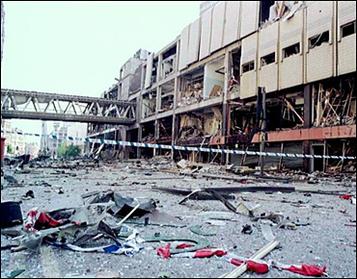 In the 1960s, larger sections of the city were demolished, re-developed, or modernised using glass and steel. Developers converted many old mills into apartments and office spaces.
In the 1960s, larger sections of the city were demolished, re-developed, or modernised using glass and steel. Developers converted many old mills into apartments and office spaces.
After the second world war, the cities fortune declined due to deindustrialisation. To add to this saddening news, on Saturday 15th June 1996, a terrorist group known as the Provisional IRA installed a bomb in a lorry; this bomb ripped through Corporation street in the centre of the city.
Great Britain had not had such a massive bomb since the end of the second world war.
There were no fatalities; the emergency services had heeded the warning the IRA sent. They were able to evacuate 75,000 people from the area. The target was the infrastructure and economy.
The UK government and other agencies gave the city extensive investment, and it began to regenerate its infrastructure,
The opening of popular shopping, eating and entertainment areas increased popularity for manchester. Buildings like the printworks and corn exchange were renovated for this recreational use.
In 2002 the commonwealth games were hosted in Manchester.
The Arndale shopping centre is one of the united kingdom’s largest city-centre shopping hubs.
Today and the future
Manchester had recovered from its terror attack in the ’90s; the injection of investments made manchester a hub for businesses in the north. In 2017, a grievous attack occurred at the manchester arena resulting in the death of 23 people, including children; countless injured.
This event unified Manchester’s people; the symbol of the worker bee became a figure against terrorism for Mancunians.
The people of manchester have not let the terror attacks take away their pride in their city.
The city’s work has not gone unnoticed; the Manchester Chamber of Commerce host an Awards evening for the Building of the Year.
Manchester City has moved away from the cotton industry. However, you can see the importance it had in creating the modern city that Manchester is today.
We are happy to be among those who can watch manchester continue to change in the future.


